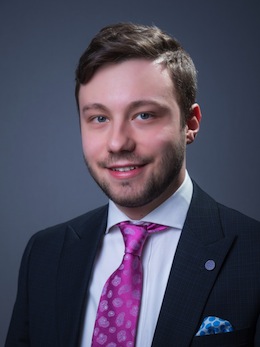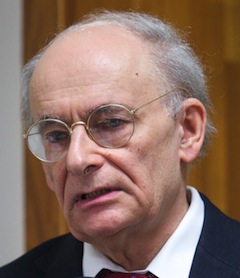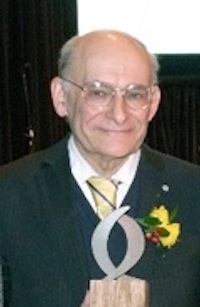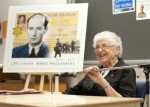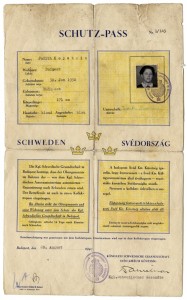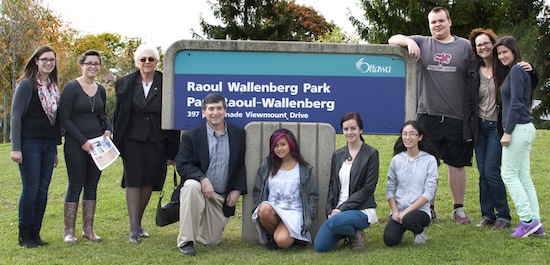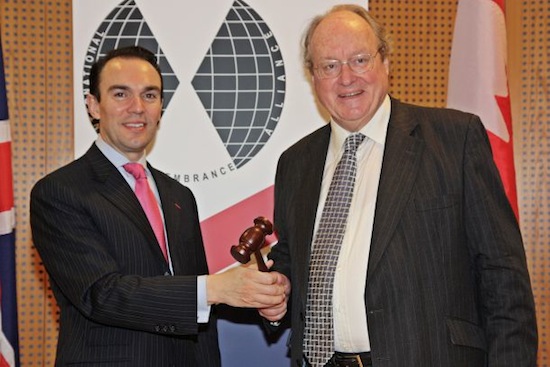Screenshot of the Jan. 30 B’nai Brith Canada panel discussion during which Selina Robinson spoke her controversial words.
Selina Robinson, who has called herself “the Jew in the crew” that is British Columbia’s cabinet, is out. The minister of advanced education and future skills resigned Monday after a torrent of protest following comments she made last week during a B’nai Brith Canada online panel discussion, in which she referred to the area that would become Israel as “a crappy piece of land.”
Premier David Eby announced Robinson’s departure from cabinet, saying her comments were “belittling and demeaning.”
“The depth of work she needs to do is substantial,” said Eby. “What has become apparent is the scope of work, the depth of the hurt. As a result, we came to the conclusion together – she needed to step back.”
The announcement came after protesters threatened to disrupt New Democratic Party events, forcing the cancelation of a major fundraising gala Sunday night and a government news conference Monday. A network of Muslim societies issued a statement over the weekend that no NDP MLAs or candidates would be permitted in their sacred spaces until Robinson was removed from cabinet.
Robinson will not run for reelection as member of the Legislative Assembly for Coquitlam-Maillardville, a decision she says she made earlier.
Response from Jewish community leaders was fast and critical.
“The removal of MLA Robinson, who apologized for her comments and promised to do better, sends a chilling message that Jewish leaders are held to a different standard than non-Jewish ones,” said Nico Slobinsky, Centre for Israel and Jewish Affairs’ vice-president for the Pacific region, in a statement. “In the past, when BC NDP politicians and staff have made antisemitic comments, the Jewish community has been asked to accept their apologies and – on every occasion – we have. As a show of goodwill, we never publicly demanded their resignations and, instead, placed our trust and faith in the premier and the BC government when he said that his team would learn from the incidents and not repeat their egregious errors.
“When, on International Holocaust Remembrance Day – a day to commemorate the six million Jews slaughtered in the Second World War – one of Premier Eby’s staff tweeted that ‘we stand with the Muslim community,’ we were asked to accept that stunning gaffe as a mistake. And we did.
“We were also asked to work with a Parliamentary Secretary for Anti-Racism Initiatives who made remarks that were deeply hurtful to our community,” Slobinsky said. “And, despite her repeated offensive actions, she continues to remain in her role.”
This reference to Vancouver-Kensington MLA Mable Elmore alludes to a history of problematic remarks, from claiming before her election that her union was dominated by “Zionist bus drivers” to more recently using a speech in the legislature ostensibly about transgender rights to call for Israel to end the war with Hamas.
Slobinsky added: “Today, as the Jewish community in BC is confronted by an alarming increase in antisemitism and by frequent pro-Hamas protests calling for the Jews of Israel to be eradicated, the loss of MLA Robinson is especially distressing, as we no longer have our strongest advocate – who understands the challenges and sensitivities of the Jewish community – at the table.
“The community is both offended and hurt by what has happened to a great ally and British Columbian, and it has seriously undermined the confidence of the Jewish community in the Government of British Columbia. Given this obvious double standard and loss of Jewish representation in cabinet, Premier David Eby must share what steps he is going to take to repair the relationship and restore the community’s trust in him and his government.”
“Facing an unprecedented increase in hate, the Jewish community in BC is hurting,” Ezra Shanken, chief executive officer of the Jewish Federation of Greater Vancouver, said in a statement. “The level of online vitriol aimed at Selina Robinson leading up to her resignation – which mirrors the reality faced by much of the Jewish community since the Oct. 7 terrorist attacks committed by Hamas – shows worrying trends in our public discourse. We are saddened to have lost one of the strongest advocates fighting against antisemitism from within cabinet – especially at a time when it is needed most.
“It is shameful that Premier David Eby has bowed to pressure from a loud minority whose campaign to discredit MLA Robinson was centred in anti-Jewish bias and lacked the offer of grace they demand when others falter.
“We need stronger leadership from this government to bring our communities together – not divide us,” said Shanken.
The Rabbinical Association of Vancouver sent a letter to the premier, signed by nine rabbis, expressing disappointment.
“We believe you have capitulated to a small but loud group of people,” the letter read. “Now it feels like you have given in to bullies for political expediency. We will remember this day the next time you ask for our trust and support.”
At least one voice in the Jewish community was pleased with Eby’s decision. “The decision to remove former MP [sic] Selina Robinson from office is a crucial win for organizers including IJV-Vancouver and our allies, who stood firm and united against anti-Palestinian racism,” tweeted Independent Jewish Voices. “The rhetoric we all heard was shameful. Thank you to all who helped hold BC accountable.”
B’nai Brith Canada told the Independent they are grateful for the work that Robinson undertook to combat antisemitism on BC’s post-secondary campuses as minister.
“It is unfortunate that comments she made last week have resulted in her feeling compelled to step down from her ministerial position,” Richard Robertson, director of research and advocacy for B’nai Brith Canada, said in an email. “We believe her apology was sincere and that MLA Robinson will work to regain the confidence of the constituents who were offended by her remarks.”
“B’nai Brith Canada believes that this incident underscores the need for the province to take further steps to combat racism and hatred,” said Robertson. “One such step, amid rising levels of antisemitism, is for the BC government to adopt the IHRA definition of antisemitism.”



